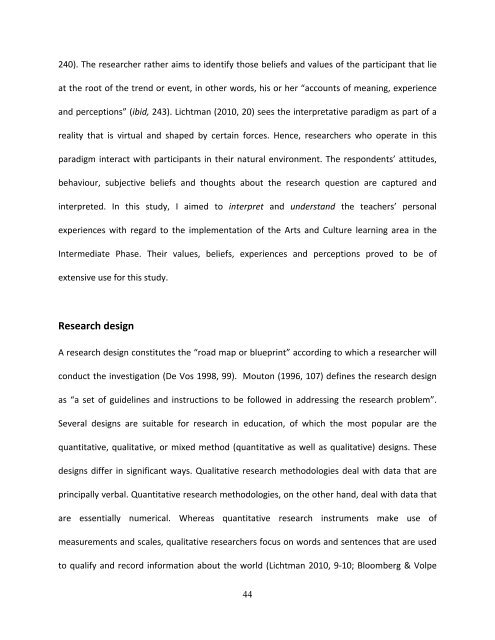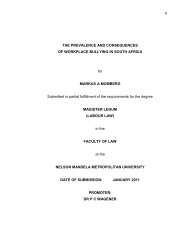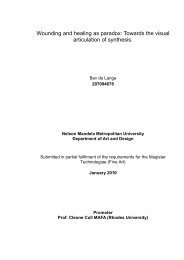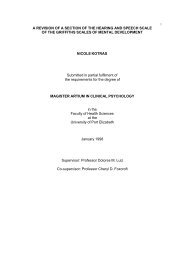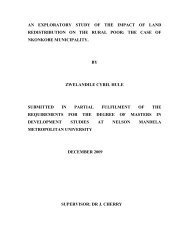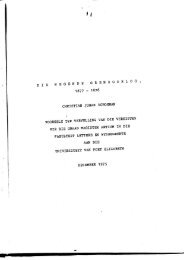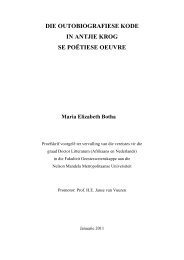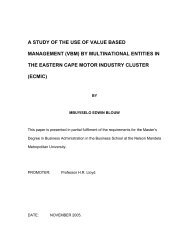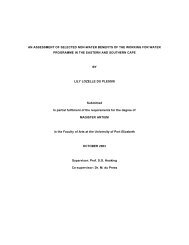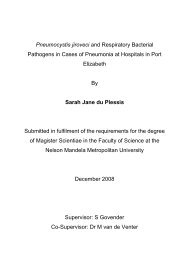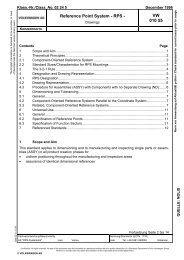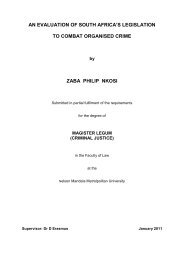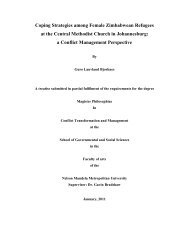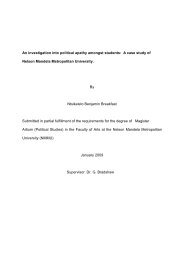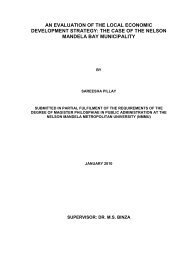Elaine Browne.pdf - Nelson Mandela Metropolitan University
Elaine Browne.pdf - Nelson Mandela Metropolitan University
Elaine Browne.pdf - Nelson Mandela Metropolitan University
You also want an ePaper? Increase the reach of your titles
YUMPU automatically turns print PDFs into web optimized ePapers that Google loves.
240). The researcher rather aims to identify those beliefs and values of the participant that lie<br />
at the root of the trend or event, in other words, his or her “accounts of meaning, experience<br />
and perceptions” (ibid, 243). Lichtman (2010, 20) sees the interpretative paradigm as part of a<br />
reality that is virtual and shaped by certain forces. Hence, researchers who operate in this<br />
paradigm interact with participants in their natural environment. The respondents’ attitudes,<br />
behaviour, subjective beliefs and thoughts about the research question are captured and<br />
interpreted. In this study, I aimed to interpret and understand the teachers’ personal<br />
experiences with regard to the implementation of the Arts and Culture learning area in the<br />
Intermediate Phase. Their values, beliefs, experiences and perceptions proved to be of<br />
extensive use for this study.<br />
Research design<br />
A research design constitutes the “road map or blueprint” according to which a researcher will<br />
conduct the investigation (De Vos 1998, 99). Mouton (1996, 107) defines the research design<br />
as “a set of guidelines and instructions to be followed in addressing the research problem”.<br />
Several designs are suitable for research in education, of which the most popular are the<br />
quantitative, qualitative, or mixed method (quantitative as well as qualitative) designs. These<br />
designs differ in significant ways. Qualitative research methodologies deal with data that are<br />
principally verbal. Quantitative research methodologies, on the other hand, deal with data that<br />
are essentially numerical. Whereas quantitative research instruments make use of<br />
measurements and scales, qualitative researchers focus on words and sentences that are used<br />
to qualify and record information about the world (Lichtman 2010, 9‐10; Bloomberg & Volpe<br />
44


